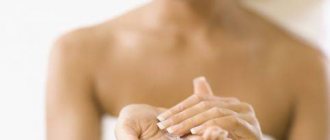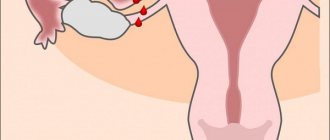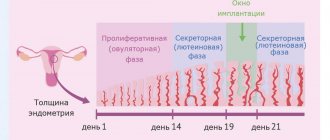Personal hygiene for a pregnant woman
You don't have to live in Ancient Greece to worship the goddess Hygieia, who personified purity and preservation of health. In those distant times, the principles of the science of hygiene were laid down, which explains how to eat, dress, and care for the body so as not to harm the body. Hygiene explains in what conditions you need to live, how to alternate work and rest, and maintain mental health.
Hygiene for a pregnant woman takes into account physiological changes in the body of the expectant mother. Under the influence of the hormone progesterone, local and general immunity decreases, and a woman becomes more susceptible to infections. Therefore, it is necessary to keep the skin and mucous membranes clean.
To do this, you should adhere to the following rules of personal hygiene:
- take a shower 2 times a day;
- use neutral or baby soap;
- do not wash the body and intimate area with antibacterial agents;
- wash the genitals from front to back;
- Do not use depilatory cream.
In pregnant women, the level of estrogen in the blood increases; hormones stimulate the active reproduction of beneficial vaginal microflora. This leads to an increase in the amount of whitish discharge. To prevent them from staining your laundry, you can use personal hygiene pads. But it is better to choose brands without fragrances, so as not to cause an allergic reaction.
Is it possible to take a bath during pregnancy?
Almost all women, when pregnant, wonder whether it is possible to take a bath during this period? There is an opinion that being in the bathroom poses a great danger to the fetus, since hot water can cause miscarriage or premature birth. Some doctors believe that in hot water the risk of infection of the embryo with pathogenic bacteria increases significantly, so they advise pregnant women to abandon this pleasant procedure until the baby is born.
Such fears are justified, but not in all cases. We must not forget that the cervix is covered with a plug of mucus, and the fetus itself is surrounded by amniotic fluid, which prevents the penetration of any microorganisms and protects the baby during intrauterine development.
However, there is still a danger when taking baths. Excessively high water temperatures can cause harm to the baby. That is why taking hot baths for 9 months is strictly prohibited. Warm water, on the contrary, can be beneficial for the expectant mother and have a positive effect on the condition of her child.
In 1st trimester
The first trimester is difficult for the mother's body. This is due to hormonal changes, which often cause increased fatigue, nervousness, and emotional instability. A woman can experience stress from any trifle, so her rest should be longer and of higher quality.
A warm bath perfectly helps cope with fatigue, promotes relaxation and calms women in the early stages. To prevent this procedure from having a negative impact on the fetus, the expectant mother should adhere to the following recommendations:
- do not increase water heating to more than 37 degrees;
- swim for no longer than 15 minutes;
- use a special anti-slip bath mat to avoid injury;
- carry out hygiene procedures only if there are relatives at home who can provide assistance if the woman’s well-being worsens.
Warm water helps eliminate nervous tension. In addition, taking a bath helps normalize the blood circulation of a pregnant woman.
In the later stages
Taking a bath is not a contraindication even in late pregnancy, if the woman does not neglect the recommendations of specialists. In the 2nd and 3rd trimesters, the same temperature regime should be used for baths as in the 1st trimester. The water should not be allowed to heat above 37–38 degrees. The duration of the procedure in later stages is also up to 15 minutes.
In the womb at this stage of development, the child already feels all the changes in the external environment, so warm water can have a good effect on his condition. A bath will give the expectant mother the opportunity to relax and relieve pain in the back and limbs, which is often caused by increased stress on the muscular system due to an increase in body weight and abdominal volume.
In the second and third trimester, you can add a decoction of chamomile flowers to the water. It enhances the soothing effect of warm water and has an antimicrobial effect. It is better to avoid liquid shower gels, foam and other chemicals before the baby is born.
A bath at the end of pregnancy helps remove toxins from the mother’s body, eliminates swelling, and reduces pressure in the venous system. Warm water stabilizes the emotional background and relieves women of anxiety.
Rule 2. Eat right
The need for nutrients and vitamins during pregnancy doubles, and the process of food digestion changes, intestinal motility slows down, and the production of hydrochloric acid in the stomach decreases. Therefore, nutrition during pregnancy must meet the following hygiene requirements:
- balanced in composition;
- contain a sufficient amount of vitamins;
- in small portions, but at least 4 times a day;
- without dyes, preservatives and other toxic substances.
Eliminate alcohol from the diet, reduce the amount of sweets and fatty foods, and increase the proportion of vegetables and fruits. But you won’t be able to increase your vitamin intake through diet alone. For pregnant women, there are special vitamin complexes that contain all the necessary components in the required proportions.
Bath products during pregnancy
There are many different relaxing bath products available. You need to approach their choice extremely responsibly, familiarize yourself with the composition, because any bath product containing chemicals can provoke allergies and other negative consequences for the body.
Bath salts during pregnancy
Natural bath salts are ideal for use during pregnancy. It instantly relaxes the body of a pregnant woman, relieves fatigue and tension and has a beneficial cosmetic effect on the skin.
Aromatic bath oils during pregnancy
If you add a couple of drops of essential oil to a bath filled with water, you can get an indescribable relaxing effect. You should approach the choice of oil extremely responsibly; take the oil whose smell is most pleasant to you. Tea tree, eucalyptus, orange and rose oils are considered the most harmless for bathing during pregnancy.
Never use tonic essential oils, such as cedar, thyme or rosemary. It is also worth noting that shower gels and shampoos that contain these products should be excluded from use during pregnancy.
By following all of the above rules for taking a warm bath during pregnancy, you can not only relieve fatigue and anxiety, but also improve your health and the health of your unborn baby.
Rule 3. Fresh air
During pregnancy, the need for oxygen increases, so walking in the fresh air is important. From a hygiene point of view, it is better to walk in a park where there is no noisy road or a lot of cars. In the hot season, this is done in the evening, during sunset.
In an apartment, to maintain hygiene, it is necessary to ventilate the rooms as often as possible. Dust that settles on things and floors contains a large number of allergens and harmful substances. Therefore, for the health of the expectant mother, you need to do daily wet cleaning.
Benefits of taking a bath during pregnancy
Taking a bath during pregnancy includes several benefits. If the health of the expectant mother allows her to regularly soak in the bath, then such a procedure will not only allow the body to relax, but will also have a beneficial effect on the functioning of the body:
- Improved blood circulation.
- Restoration of the nervous system.
- Elimination of pain in the back and muscles.
- Combating moderate edema.
- Relieving fatigue.
- Fighting insomnia.
Rule 5. No heels
A feature of pregnant women’s posture is a shift in the center of gravity. Therefore, to maintain personal hygiene, you need to switch to shoes with a stable heel no higher than 2-3 cm. Completely giving up heels and wearing shoes with flat soles is also harmful to health.
Hormonal changes in pregnant women make the ligaments loose. Therefore, many women develop flat feet after childbirth. To avoid this, it is recommended to choose orthopedic insoles during pregnancy.
Why can't you lie in hot water?
High water temperature causes an increase in blood pressure in a pregnant woman. A hot bath has a similar effect on a child. Therefore, doctors categorically prohibit taking a bath with excessively high water temperature. The consequences of taking a hot bath are:
- disturbances in fetal development when water is heated to 38.5 degrees;
- premature birth due to overheating in the last period of pregnancy;
- miscarriage or intrauterine death of the baby when the temperature rises to 39 degrees.
High water temperature poses the greatest danger at the initial stage of pregnancy, as it leads to increased uterine tone and an increased risk of miscarriage. In the latter stages, this procedure is safe if the water in the bathroom is not too hot. However, women with increased uterine tone are contraindicated from taking a bath, both in the early and late stages of bearing a child.
Hygiene after childbirth
In the postpartum period, intimate hygiene acquires new features. During the first month, lochia is released from the genital tract - a mucous-bloody discharge. To absorb them in the first few days, it is better to use urological pads, and replace regular underwear with disposable ones.
The mammary glands require special care. The main cream for nursing mothers is any drug with dexpanthenol. It helps prevent the appearance of cracked nipples and speeds up their healing. A special bra for nursing mothers will support the breasts in the correct position, and round pads for absorbing milk will keep the linen clean.
The life of a young mother is adjusted according to the needs of the baby. But modern personal hygiene products make caring for yourself and your newborn easier.
Taking a bath in early pregnancy
At the beginning of pregnancy, the body begins to rebuild and change dramatically. During this period, there may be a sharp change in mood, causeless fatigue, and drowsiness. Taking a warm bath before bed will help calm and relax your excited body as much as possible.
In order to take a bath in early pregnancy and avoid unpleasant consequences, you need to consider several important rules:
- The water temperature should not exceed 37 degrees, otherwise you risk overheating.
- It is recommended to lie in a warm bath for no longer than 15 minutes.
- All safety precautions for exiting the bath should be observed. Prepare a rubber mat; when leaving the bath, be sure to hold on to something so as not to slip or hit yourself.
- In order to relax a tired body as much as possible, you can use various aromatic oils, for example, orange, tea tree or eucalyptus.
- Plan your bath at a time when one of your relatives is in the house. If you find it difficult to get out of the bath or experience sudden dizziness, you will receive help.
Information: can pregnant women lie in the bathtub?
At about 20 weeks of pregnancy, you can take a bath, but you must follow some important rules.
In particular, such as:
- We need to give up chemicals;
- If you are allergic to chlorine, you should avoid water treatments;
- The water should be at a comfortable temperature.
If you start taking a bath a few weeks before giving birth, the unborn child will happily accept water procedures, however, provided that all the rules are followed. For a pregnant woman, a warm bath can be a very good, relaxing remedy; the most important thing is to approach the process of taking it competently. In late pregnancy, you can add chamomile decoction to the water, which has a calming effect.










